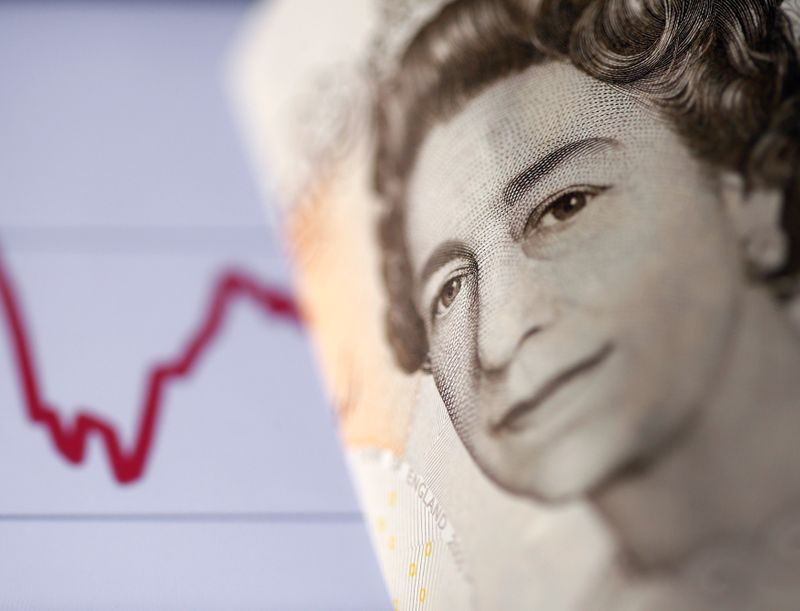By David Milliken
LONDON (Reuters) - Britain sold a government bond with a negative yield for the first time on Wednesday, meaning the government is effectively being rewarded for borrowing after investors agreed to be repaid slightly less than they lent.
It joins Japan, Germany and some other European countries in selling debt yielding less than 0%, reflecting the prospect the coronavirus pandemic will cause a severe global recession and bond-buying by central banks to mitigate its impact.
Wednesday's auction saw 3.75 billion pounds ($4.6 billion) of gilts maturing in July 2023
While investors will receive annual interest of 0.75%, they paid above face value for the bond so the cash return will be less than they have lent if they hold the debt to maturity.
"The impact of the Bank of England's rate cuts and increased asset purchases is absolutely clear from this morning's groundbreaking gilt auction," said Hugh Gimber, global market strategist at J.P. Morgan Asset Management.
The BoE cut interest rates to a record-low 0.1% in March and began buying 200 billion pounds of assets, mostly gilts, to help the economy and cap a spike in yields seen at the start of the coronavirus crisis.
Financial markets also see a strong chance that the BoE will cut its main interest rate below zero later this year, although economists are more doubtful.
Negative interest rates potentially challenge some banks' and building societies' solvency as they find it hard or impossible to apply them to customers' savings accounts.
Former BoE Governor Mark Carney strongly opposed the idea, but some policymakers have said they are reconsidering it.
Yields for two-year benchmark gilts, which are sensitive to BoE rate expectations, sank to a record low of -0.051% last week.
For an EXPLAINER on negative rates, click
DEMAND
Appetite for British debt has been strong since the BoE started its purchases -- a relief for the government, which is on course to borrow hundreds of billions of pounds this year after measures to stop contagion shut down the economy.
Demand for Wednesday's bond was low by recent standards: investors bid for just over twice the amount offered, the weakest demand since before the BoE cut rates.
By contrast, a new 10-year gilt last week drew a record $100 billion in orders.
The negative yield does not mean all buyers will lose money, as some may be hoping the bond's price will rise further and they can sell it on, said Marc Ostwald, strategist at ADM Investor Services.
Others would be looking to hedge against the risk of the BoE cutting rates below zero, he added.
For British company pension funds, which are limited in how they can invest, negative yields will increase costs and potentially require employers to provide a cash top-up.
"This may be the last thing the sponsor needs, given the current economic situation and the potential difficulty in affording those extra payments," pension fund trustee Vassos Vassou of Dalriada Trustees said.
($1 = 0.8157 pounds)
